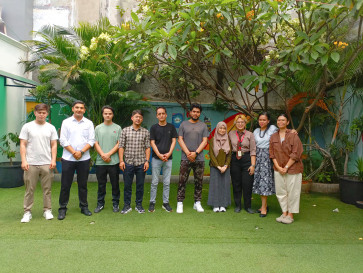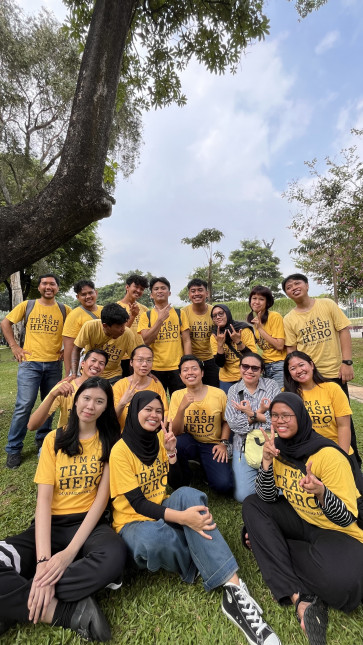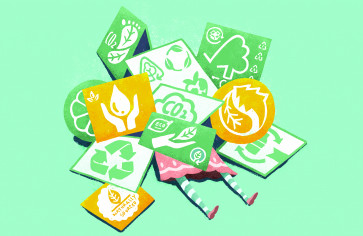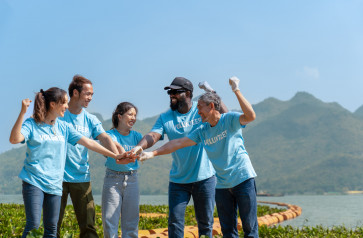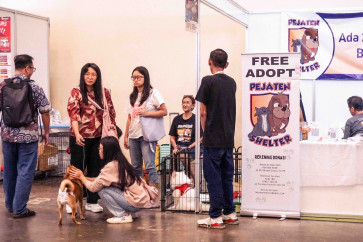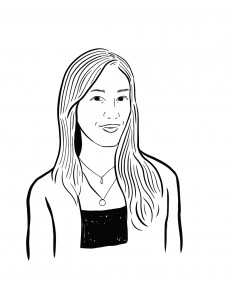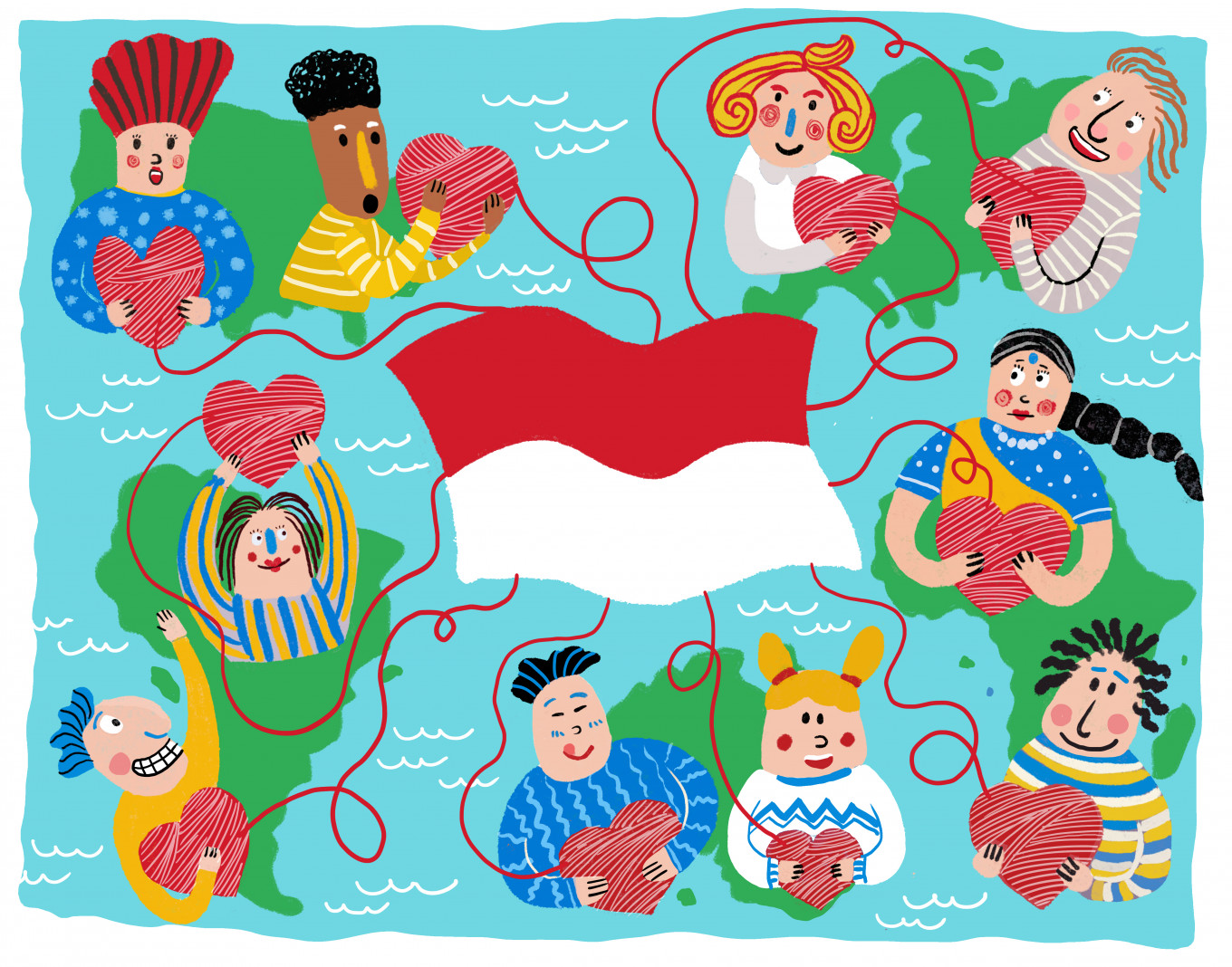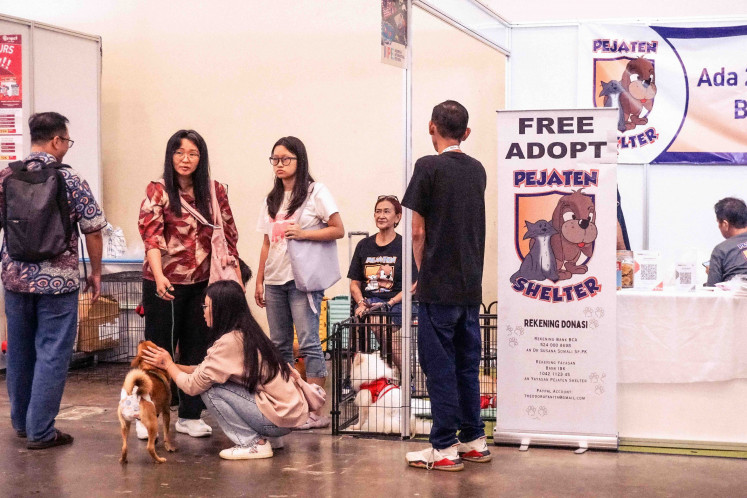Many Indonesians dream of living elsewhere: The trending hashtag #KaburAjaDulu (Run away first) has accelerated applications for working holiday visas and led to a surge in Google searches for jobs abroad and planning a fresh start. They’re in search of a new home that can provide a better life.
But on the other side of the spectrum is a smaller group of people who, regardless of their nationality or ethnic background, will always call Indonesia home. Among them are third culture kids (TCKs): people who were raised in a culture different from their parents’ place of origin.
The term was coined in the 1950s by American sociologist Ruth Hill Useem. “First culture” refers to the parents’ root culture while the “second culture” is where the children grew up, and the third is a union of the two, blending the values and beliefs from both.
Sociologist Ruth van Reken notes that while TCKs are often multilingual and globally minded, they often wrestle with feelings of rootlessness and restlessness, where home feels everywhere and nowhere at once.
Thanks to globalization and cross-cultural marriages, TCKs are now more common in Indonesia than ever. If home is tied to the country of our passport for most of us, the word has a far more fluid definition for many TCKs.
Despite the privilege of being able to live elsewhere, their compass still points to this sprawling archipelago.

Thank you!
For signing up to our newsletter.
Please check your email for your newsletter subscription.
So why do these globally raised kids still feel pulled back to Indonesia?
When belonging doesn’t come easy
Being a TCK may be a privilege, but it also comes with its own set of challenges.
“When I was younger, I was just confused,” says Lesley Clarissa Putri Bruce, 23, whose father is British-Irish.
“In the first grade in an Islamic school, I was called bule,” she recalls, referring to a slang word for Westerners that actually derives from bulai, meaning “albino”.
“I cried every day because I didn’t know what that meant. But then I got [called that] so much, so I just accepted it.”
Though she identifies as Indonesian, Lesley is still unsure if she is a TCK. She believes Indonesian society isn’t always open to cultural nuances.
Anya Kapoor-Fotedar, 16, who was born in Bangkok to Indian parents, agrees.
She grew up in Jakarta, just like her mother, and has had her fair share of being labeled rather than understood. Fitting in wasn’t always easy.
Anya felt more at ease at her first school, Nord Anglia School Jakarta, which had a more diverse student body than Mentari Intercultural School, where most of her classmates were Indonesian.
She’s also faced Indian stereotypes in the past, especially during the pandemic.
Even within the walls of international schools, feeling comfortable wasn’t guaranteed, and experiences like Anya’s and Lesley’s show how the identities of people raised in a so-called third culture are often shaped and reshaped in spaces of discomfort.
Still, Anya says she values her upbringing.
“One of the biggest pros of being a third culture kid is exposure,” she says.
“You learn about the world, sometimes more than you learn about the place you’re actually living in.”
International, not just third culture
Ana Cecilia “Cecil” Regalado, 32, a Philippine national who has lived in Jakarta from when she was 10 months old, has a slightly different experience.
She says her former school, Sekolah Pelita Harapan (SPH), helped normalize her TCK status because her classmates came from all over the world, so having an international background was ordinary.
“It's not enough to describe us as third culture kids simply because we were born in a different country. Though we were raised here, we went to an English-speaking institution. It removed us from the local culture somewhat,” says Cecil.
Quoting a classmate’s essay on TCKs, she feels “international” is a more accurate description. In her bubble, people often switched between languages in a single sentence, a cultural and linguistic mix that lends a natural sense of belonging.
As for Lesley, she first saw her lack of belonging as a lack of identity. Now, living in the Netherlands among many dual nationals, she recognizes it was cultural misalignment. It’s why “international” resonates with her more than “third culture” too.
For many TCKs, home isn’t about borders; it’s about creating circles of connection.
For Anya, that circle came through acceptance.
“As I grew up, I realized that if I keep this mindset of ‘I don't belong’, then I genuinely will never belong,” she says.
“So I started letting go and making efforts to be friends with everyone. By doing that, I was able to find a place for myself.”
Why Indonesia is home
Even now, Cecil refers to visiting Indonesia as pulang kampung, or homecoming. She sees Jakarta as the place that shaped her. For her, Indonesians have a special spark and outlook of life, a special something in their character.
“A lot of Indonesians I know have a sense of who they are very strongly. In comparison, our Filipino history has not been one where we have that sort of sense of identity,” she explains.
“Jakarta has its drawbacks, sure, but deep down, there's something about this city that makes me feel safe and comfortable.” - Anya
Back in the Philippines where she’s based, she finds it harder to adjust, and generally gets along better with people who have had international exposure.
Anya also thinks of Jakarta as home, even as she prepares to move to Wales to continue her studies.
“I think one of my deepest connections to Indonesia is the fact that I feel like it's home,” she says.
“Jakarta has its drawbacks, sure. I know anything can happen, but deep down, there's something about this city that makes me feel safe and comfortable. I hope to go back to Jakarta to work someday.”
As for Lesley, home is simply where she grew up and where her family is, so that means Indonesia, too.
Where the heart is
Cecil says being a TCK is both a privilege and a burden.
Lesley agrees.
“When you learn more about other cultures, you become more open-minded. The con is definitely not having a sense of belonging. But does it outweigh the pros? I would prefer being a third culture kid than not,” she muses.
For all three, their sense of belonging might blur from one place to another, but Indonesia still feels like home. That alone might be enough to make them Indonesian in spirit, if not legally.
If anything, their presence deepens the philosophy behind the national motto we hold so dear: Bhinneka Tunggal Ika (Unity in Diversity).
Both Anya and Lesley’s parents still call Indonesia home, too.
Maybe then, home is not a place, but a group of people. And August is always a good time to reflect on the kind of belonging we all seek.
“Actually, on August 17th, I always make sure to take that day off, filing a leave [request] for that day,” Cecil says.
“I'm starting to sound old, but I do it as a form of respect for the way I grew up.”
Sheena Suparman is a writer for The Jakarta Post's Creative Desk. She is based in Jakarta but wishes she could be anywhere else. She’s usually powered by coffee, chips and cheeseburgers.






